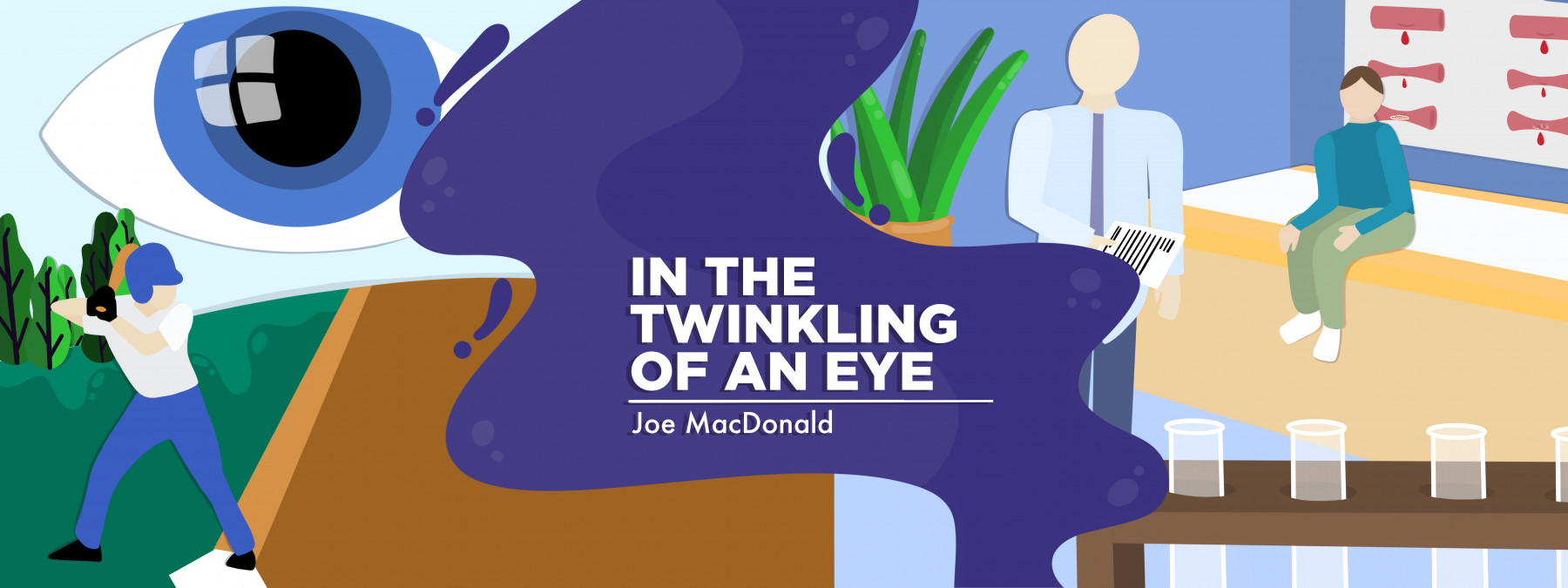Facing the sobering reality that my son is living with a disability
But even hemophilia complications won't deter him from his dreams
Written by |

Earlier this week, my youngest son, Caeleb, and I parked my car and walked to the financial aid office at the University of New Mexico, where he’s a freshman. As we walked, we talked about him registering for the spring semester. He expressed concern that he wouldn’t get into the classes he needs to take if too much time elapses between the opening of the registration period and the end of the week. Then he said something that caught my attention.
“I have a disability, so I’ll be able to sign up for the classes I need.”
I caught myself before anything came out of my mouth, but I reacted strongly to his choice of words. The dialogue within my soul seemed to say, “What are you talking about? You don’t have a disability.”
As soon as I checked myself, I looked at how he walked with a limp. I thought of the many times he went to school in a wheelchair or on crutches because chronic pain left my young man doubled over in agony.
The selfish part of me cried out, “I don’t like you, hemophilia, for causing such difficulty for my son.” I realized that, in explaining his complications to us, Caeleb’s medical team had left out one crucial detail: that the damaged joints in his right ankle and foot had little to no cartilage remaining. In other words, his pain would continue, even years after the episodes of internal bleeding in his joints. I couldn’t just slap a Band-Aid where it hurt, and in one quick minute, everything would be OK.
As quickly as I’d reacted to the word disability, the noise in my head stopped. I realized I needed to accept the fact that, whether I like it or not, my son is living with a disability. He requires medical attention that most others on campus do not. As someone who manages chronic pain and a bleeding disorder, he takes a different approach to tasks such as registering for classes than I would.
A silver lining
We reached the financial aid office, and Caeleb accepted the rest of the funds for this school year that help cover many of his needs at college. We breathed a sigh of relief as we said our goodbyes to the clerk who’d helped us. Life looked a little brighter as we left the office.
As we walked back to the car, I gathered the courage to share with my son my initial thoughts about what he said regarding living with a disability. I said, “Son, I have something I need to tell you. When you mentioned your disability, I wanted to deny you had one. I looked down at your walk, and your limp caught my attention. I thought, ‘Damn, he does have a disability.'”
Caeleb looked at me and responded, “I know, Dad. I have those struggles myself. I must accept things just as they are.” I agreed with him, and we continued walking and talking about life’s issues. He shared his dreams for the next academic semester and how he hopes to one day attend the Art Institute of Chicago.
I loved the conversation because we didn’t give hemophilia or chronic pain the last say. Instead, we talked about our dreams and hopes for the next stages of Caeleb’s life. Somehow, I felt like we were in a holy place, set apart so that only we could enter. We discussed ways to save money so he could live in Chicago while attending school.
While we couldn’t solve the medical issues that pose significant problems for my son, we did find a silver lining. Caeleb will march on because nothing can stand in the way of fulfilling his dreams. Life may throw him curveballs, and hemophilia may have left its mark on his body, but my incredible son will persevere through it all. He isn’t just a survivor; he’s a thriver and a beacon of inspiration for us all.
As we got into the car, I couldn’t help but feel only joy. My son taught me something that day. I learned that while he struggles with leftover complications related to hemophilia, he won’t let anything write his course but himself. His strength brought me happiness as we continued our conversation on the way back home.
Note: Hemophilia News Today is strictly a news and information website about the disease. It does not provide medical advice, diagnosis, or treatment. This content is not intended to be a substitute for professional medical advice, diagnosis, or treatment. Always seek the advice of your physician or another qualified health provider with any questions you may have regarding a medical condition. Never disregard professional medical advice or delay in seeking it because of something you have read on this website. The opinions expressed in this column are not those of Hemophilia News Today or its parent company, Bionews, and are intended to spark discussion about issues pertaining to hemophilia.




Camila Elizabeth
Love it...